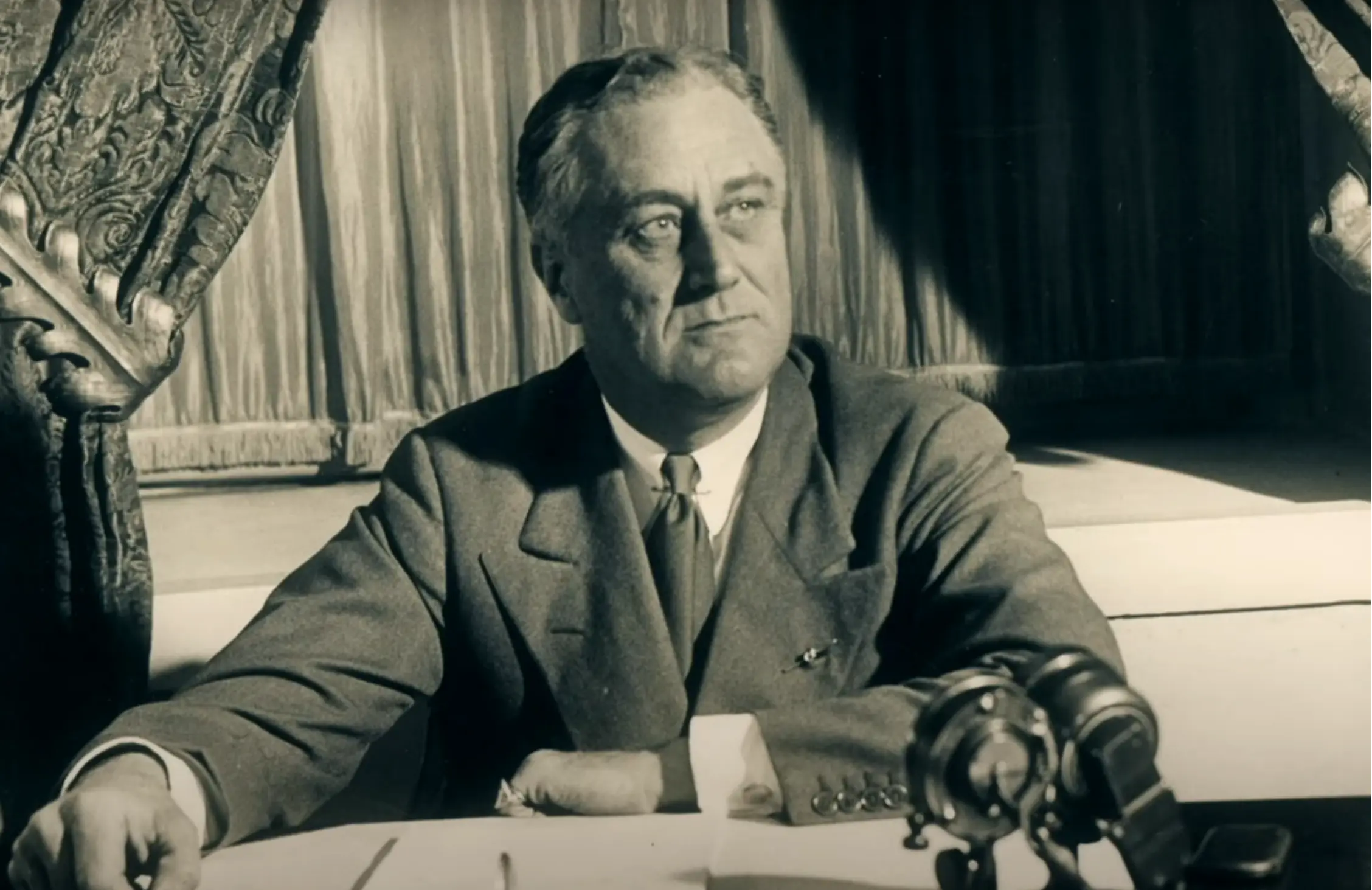History's FDR Docuseries Lacks the 32nd President's Ability to Tell a Riveting Story
-

Franklin D. Roosevelt is one of the most influential presidents in U.S. history: He ended the Great Depression through his radical New Deal programs, some of which are still in use today; led the U.S. through the bulk of WWII; unified the American public in unprecedented ways through his Fireside Chats; was elected four times; and was the first openly disabled president. So, when the History Channel announced the three-part presidential docuseries, FDR, promising to tell the untold story, expectations were understandably high. Unfortunately, the series, which is co-produced by Bradley Cooper and based on Doris Kearns Goodwin’s Leadership: In Turbulent Times, fails to meet those expectations.
Episode 1 begins with FDR’s wedding to Eleanor Roosevelt, complete with a cameo from his infamous cousin Teddy Roosevelt, walking Eleanor down the aisle. But this compelling opener is quickly lost in the typical documentary-style production, with still images and conversation led by historians taking over the storytelling.
There are many missed opportunities for reenactments in the premiere, from FDR openly supporting Teddy Roosevelt’s opponent while still never losing his cousin’s good favor, to moments with his mother, who was very important in his life, or with Lucy Mercer, a woman he was forbidden to be with yet continued to see until his final days in 1945. The lack of these dramatizations undercuts some of FDR’s personal history, as when one of his advisors warns him about how a potential divorce scandal would affect his mother.
The few reenactments in the premiere feel like afterthoughts, which is particularly disappointing because the cinematography is stunning throughout the series, and Christian McKay gives an uncanny performance as FDR. Alice Bounsall doesn’t fare nearly as well as Eleanor Roosevelt — she struggles to embody any of the First Lady’s humanity, though she does manage to look the part. Bounsall simply isn’t up to the challenge of playing opposite McKay, who embodies the force that was FDR in a single scene. The docuseries has a similar struggle: It attempts to explore Eleanor Roosevelt’s life and the impact she had on women in America, which is deserving of its own documentary, but leaves many loose ends regarding her social justice work and complicated feelings about FDR’s decisions.
The second episode of FDR feels like it’s from an entirely different series, one that strikes a better balance between drama and documentary. The dramatizations blend beautifully and naturally with the archival footage and historical commentary. This installment also introduces a world map with visual elements that are effective and captivating. However, the highlight of the second episode (and perhaps the entire series) is the final vignette. FDR makes the decision to surprise counterattack the Japanese at Midway Island, only to be reminded that his son, Jimmy, is aboard one of the ships that will be in the thick of the battle. What makes this moment resonate is McKay’s fantastic performance — the actor is especially poignant in his powerful delivery of “God bless them all" — and all the groundwork the docuseries laid to demonstrate how close FDR was with his sons. That is great storytelling, but it’s also a reminder of how his relationships with his mother and Lucy Mercer are shortchanged.
The final episode keeps up the momentum, but misses out on a key opportunity to underscore the ongoing relevance of this history. FDR breezes through the 32nd president’s refusal to intervene with the concentration camps in Europe. While it is a big ask to cover his entire life in 4.5 hours, something as important as the U.S.’s complicity in genocide is deserving of more than two minutes of historian commentary, especially considering that antisemitism is very much alive today. This is the fundamental failure of FDR: It glosses over too much of the New Deal president’s riveting story, resulting in a three-part docuseries that’s more middling than groundbreaking.
FDR premieres May 29 at 8:00 PM ET on History Channel.
Tara Moses (she/her) is a citizen of Seminole Nation of Oklahoma, Mvskoke, award-winning playwright, director, Producing Artistic Director of telatúlsa, co-Founder and Executive Producer of #BINGE, and co-Founder of Groundwater Arts.
TOPICS: FDR